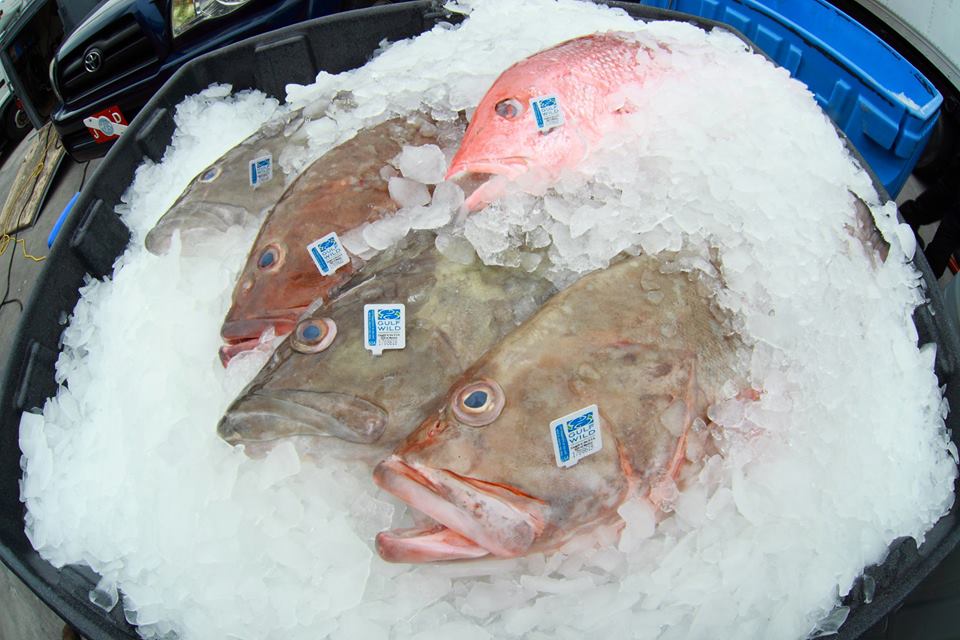In the coming weeks, the House is likely to vote on Rep. Don Young’s (R-Alaska) Strengthening Fishing Communities and Increasing Flexibility in Fisheries Management Act, or H.R. 200.
This revision and reauthorization of the Magnuson-Stevens Fishery Conservation and Management Act garnered a lot of support in the industry but has since been amended to include anti-commercial-fishing language that all but assures the slow creep of commercial quota to the sport fleet in favor of a tourism-based economy.
“It’s time for the federal policies that govern U.S. fisheries to account for the impact the recreational and boating industries have on the economy,” said Martin Peters, Government Relations Manager for Yamaha Marine Group in a press release.
A band of charter fishermen out of Galveston, Texas, is publicly protesting Yamaha Marine Group because the company has actively been lobbying for the amendment, which weakens the commercial fleet’s access to reef fish quota on the Gulf Coast.
“We had turned the corner and rebuilt these fisheries,” Scott Hickman, owner of charter fishing company Circle H Outfitters of Galveston, Texas, told the Daily News in Galveston. “Now, companies like Yamaha are funding bad legislation that would roll back the conservation aspects of the act.”
Yamaha’s advocacy cemented the company’s alliance with recreational fishing interests and the Coastal Conservation Association. But the push to strip the commercial fleet of its quota reportedly has broader support among other members of the National Marine Manufacturers Association, as well.
“The National Marine Manufacturers Association is behind an amendment to H.R. 200 that in effect removes the government scientists from management in the Gulf and South Atlantic region among other things,” said Bob Jones, executive director of the Southeastern Fisheries Association. “H.R. 200, as a stand-alone bill, is widely supported, but when Louisiana’s [Rep. Garret] Graves added the CCA/NMMA toxic amendment it made the bill unworthy for passage. His amendment allows the anti-fishing groups to take fish from the general public that depends on professional, commercial fishermen to provide them their share of our mutually owned marine resources.”
The power shift may well be traced back to the January 2017 appointment of Yamaha’s Martin Peters to NOAA’s National Marine Sanctuary Business Advisory Council.
As stated by Ben Speciale, president of Yamaha Marine Group, in the company’s announcement: “We are excited that Yamaha, and the recreational boating industry, will now have a formal seat at the table during NOAA’s decision making process, as the agency considers policies that concern public resources that our [sic] critical to our industry.”
Just six months after that appointment, the Commerce Department exploded the recreational snapper season in the Gulf of Mexico from three to 42 days, which allowed the sport sector to overfish its quota by about 200 percent (read more here, here and on page 8 of our August issue). Yamaha publicly applauded the move.
Internal memos between Earl Comstock, director of Policy and Strategic Planning for Commerce, and Secretary of Commerce Wilbur Ross reportedly showed that they intentionally violated the Magnuson-Stevens Act, acknowledging that extending the recreational snapper fishery would lead to significant overfishing.
“It would result in overfishing of the stock by 6 million pounds (40 percent), which will draw criticism from environmental groups and commercial fishermen,” wrote Comstock, in a June 1, 2017, memo to Ross. “However NMFS agrees that this stock could handle this level on a temporary basis.”
The rec interests will tell you that three days is an absurdly short season for a fishery that is bouncing back. They fail to report that while the commercial fleet has effectively managed its quota, the recreational sector has overfished its quota for 23 of the last 27 years. Their season is short because their effort is unsustainable. And now they’ve blown it out of the water on purpose. Who will pay for that? Not likely the sport fishermen.
The message this sends to commercial fishermen is that it does not matter how hard the sector works or how tightly it is restricted to rebuild a fishery. If the powerful recreational lobby gets a taste for blood, your sacrifices will be worthless, and you could be sent packing without a shred of compensation. No one suggested allowing the commercial sector to overfish for bonus income last year. This bill will continue to reward a sector that is determined to overfish its quota and punish the sector that has rebuilt the fishery.
Like many other fisheries around the country, Gulf of Mexico snapper fishermen are facing a powerful CCA lobby in the fight for access to their fishery. Their ability to attach the mission to Magnuson reauthorization speaks to their lobbying power.
"Last fall, recreational fisheries groups successfully added a sportfishing bill, the Modern Fish Act [ also called the Modernizing Recreational Fisheries Act], to H.R.200," said Noah Oppenheim, executive director of the Pacific Coast Federation of Fishermen's Associations. "So a lot of the support you're seeing from the sportsmen's caucuses is driven by that, rather than their new-found love for a bad commercial fisheries bill. I'd much rather see individual fisheries bills evaluated and moved forward on their own merits rather than become politicized like this."
In June 2018, Yamaha’s recent president, Phil Dyskow, was appointed to the Gulf of Mexico Fishery Management Council. Dyskow is also a board member for the polarizing Kenai River Sportfishing Association (which recently targeted Alaska’s Cook Inlet setnet fleet) and a lifetime legacy member of CCA’s California chapter.
This is not a new fight, and it will not be the last place CCA picks a battle.
Yamaha has made a business decision to side with the rec fleet. Now it’s up to you to decide what companies have earned your investment and whether you will stand with your fellow fishermen in the Gulf of Mexico. Please call your representatives today and ask them to separate the Modernizing Recreational Fisheries Act from the Magnuson reauthorization.







